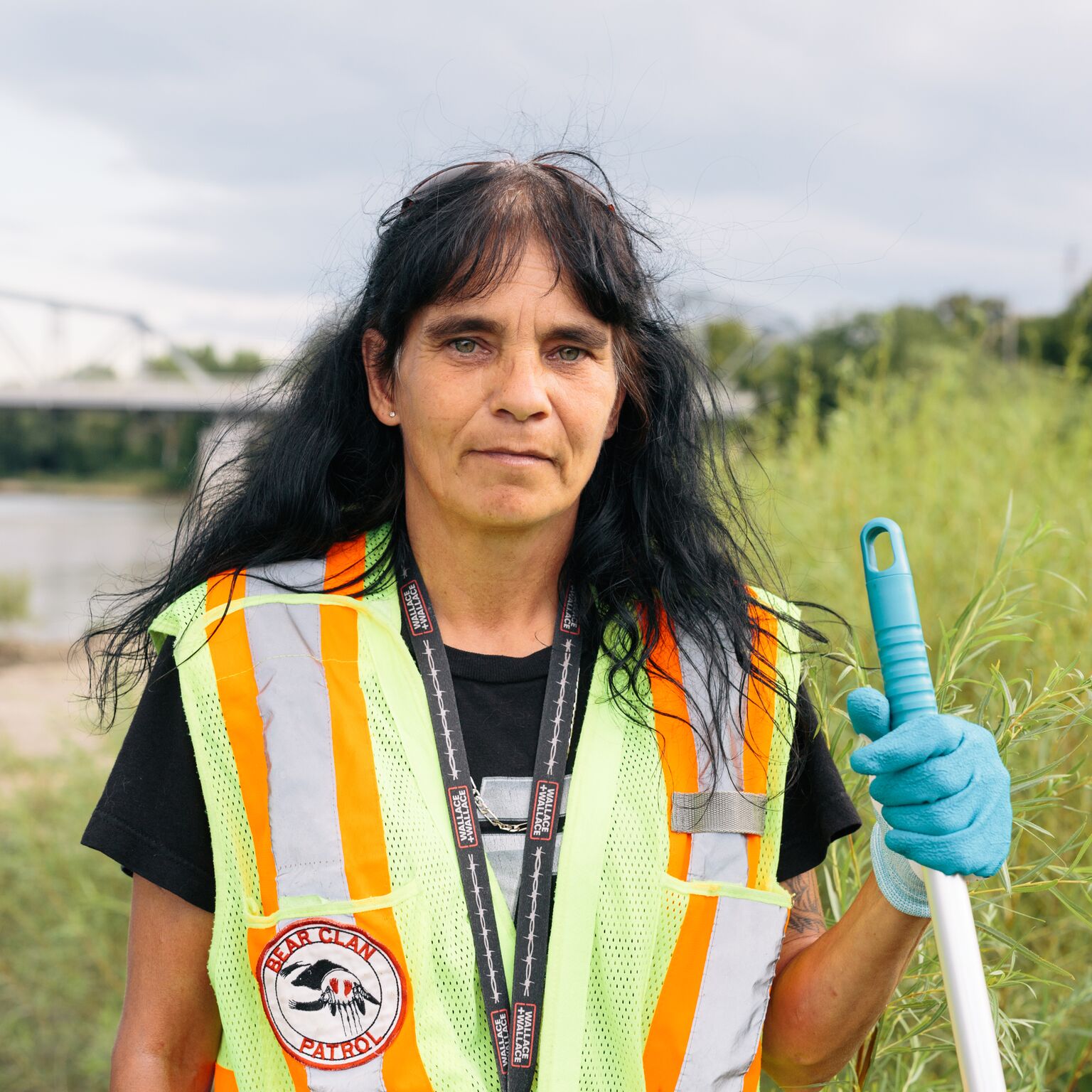There’s another story to the tragic saga of missing and murdered Indigenous women (MMIW) and it’s coming to light through an Instagram project created by the National Film Board (NFB).
What Brings Us Here — a project by writer and filmmaker Katherena Vermette and producer Alicia Smith — profiles volunteers of the Drag the Red and Bear Clan Patrol of Winnipeg. These grassroots movements patrol neighbourhoods and search the banks and waterways of the Red River in response to the many missing in their communities.
The RCMP has officially stated that about 1,017 Aboriginal women were killed between 1980 and 2012, and that another 164 were considered missing but the Native Women’s Association of Canada (NWAC) puts the total number at 4,000. Either way, the problem is deeply violent and widespread.
“We felt there was so much more to the story,” said Vermette, a Metis writer of fiction, poetry and children’s books. Vermette made an NFB short with Erika McPherson called This River and the Instagram project extends it further.
“Our film was about the emotional reality of a loved one go missing and remain missing… [With this project] we wanted to highlight the work of so many volunteers who work tirelessly to do this work.”
Vermette, whose new novel The Break is a finalist for the Rogers Writers’ Trust Fiction Prize and a finalist for the 2016 Governor General’s Literary Award, is collaborating with local photographers Karen Asher, Mark Reimer and Janine Kropla.
What Brings Us Here is an unfolding online project that finishes at the end of November and will encompass more than 80 images and stories.

Photo credit: Mark Reimer
On the site, you get profiles such as Alison Cox, who says she’s a volunteer because her mother was murdered and she gets “re-traumatized” whenever she hears news reports.
“I was becoming very depressed because of the number of traumas that were being retold in the newspapers, on TV, and I was starting to get really sick, very ashamed, very lost, feeling suicidal. These were all things that I went through as I was trying to learn about the story of my mother’s murder.”
Or Aaron Stevens, who’s recovering from addiction and feels the family atmosphere of the volunteer groups supports his sobriety:
“It helps me with a lot of guilt and shame — you carry a lot of guilt and shame with addiction, right? I couldn’t even look people in the eyes. And now I can be proud. Even when I’m not doing Bear Clan, I’m able to walk around with my head up high, knowing that I’m doing something about it.”
Vermette says photographing these individuals is about “awareness.”
“It’s about the amazing people behind the issue, the faces and the stories.”
Producer Smith says the reaction has been “really positive” from the people they’ve chronicled so far.
“People have been supportive and thankful,” she said in an email. “Their grace and generosity astounds me. In some cases, people have shared their story for the first time. The process is vulnerable and can be painful but it is also very moving.”
Smith also points to the fact the project is fostering engagement between Indigenous and non-Indigenous communities, precipitating communication.
“I’m hoping we can continue this account in some fashion after November,” she said. “I think there are many opportunities for Indigenous voices and narratives on this platform.”
For Vermette, the project has given back to her as well.
“I’ve really found a sense of hope. The resiliency and strength of my people inspires me.”
June Chua is a Berlin-based journalist who regularly writes about the arts for rabble.ca.



